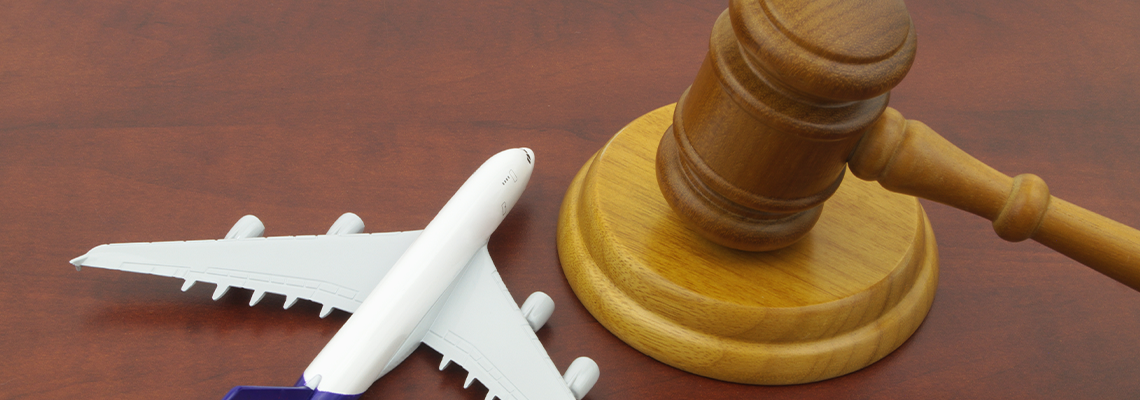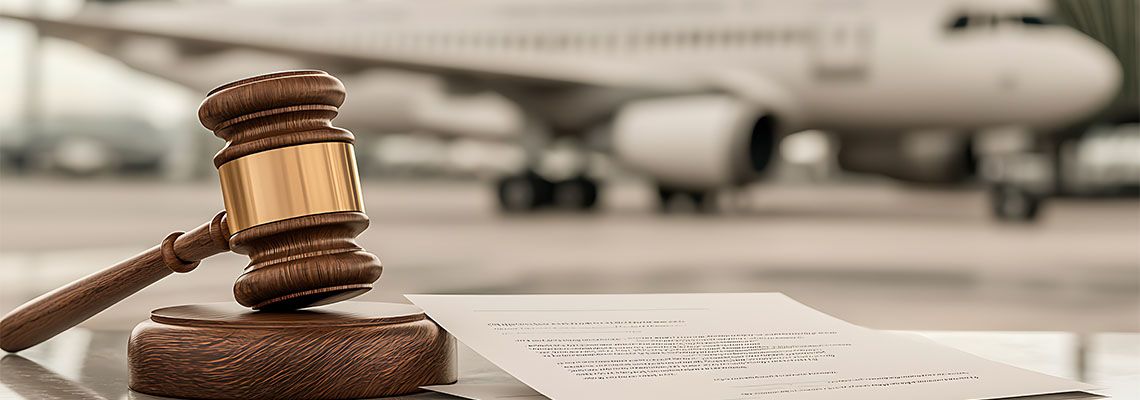Acquiring an aircraft for your business is a monumental step that can revolutionize your operations, improve efficiency, and even offer an edge in a competitive market. However, deciding whether to purchase or lease a plane is no small task.

Can You Export an Aircraft With a Lien?
Exporting an aircraft can be complicated, especially if there's a lien involved. Whether you're the aircraft owner, buyer, or seller, it is important to understand the implications of exporting an aircraft with a lien. Attorney Bill G. Harger offers invaluable insights to help you make informed decisions.
What Is a Lien on an Aircraft?
A lien is a legal claim against an asset, in this case, an aircraft, used as collateral to satisfy a debt. If the debt remains unpaid, the lienholder has the right to seize the aircraft.
Common reasons for liens on aircraft include unpaid loans, unpaid maintenance fees, or other financial obligations. Ignoring the lien can result in legal complications and potential seizure of the aircraft by authorities.
Liens on aircraft can take various forms, including consensual liens and non-consensual liens.
Consensual liens arise from agreements between parties, such as a mortgage or security agreement, where the aircraft is used as collateral for a loan. Non-consensual liens include mechanic's liens or tax liens, which are imposed without the owner's consent, typically due to unpaid services or taxes.
Each type of lien involves specific legal procedures and documentation, making it essential for all parties involved to conduct thorough due diligence. Properly addressing these liens is crucial to avoid delayed transactions and ensure a smooth transfer of ownership.
Exporting an Aircraft With a Lien
It is possible to export an aircraft with a lien, but the process is complicated and requires careful attention to detail. Here are the key steps involved:
1. Identify the Lienholder
This could be a bank, financial institution, or any other entity that holds the lien. It is important to know who has the legal claim on the aircraft.
2. Communicate with the Lienholder
Once you've identified the lienholder, you must inform them about your intent to export the aircraft and discuss the necessary steps to either satisfy the lien or gain their consent for the export.
3. Satisfy the Lien
To satisfy the lien, you need to pay off the debt in full. Once the lienholder receives payment, they will release the lien, allowing you to proceed with the export. Ensure all payments are documented and obtain a lien release certificate as proof.
4. Obtain Export Documentation
After the lien is released, gather all the required documentation for export. This includes:
Bill of sale
Lien release certificate
Export certificate of airworthiness
Registration certificate
Export declaration
5. Notify the Authorities
Inform the Federal Aviation Administration (FAA) and other relevant authorities about the export. Ensure all regulatory requirements are met and keep copies of all communications for your records.
6. Work With a Legal Expert
Due to the complexities involved, it is recommended to consult with an attorney who specializes in aviation law. They can help you understand the nuances of the process and ensure all legal requirements are fulfilled.
Aircraft Liens in Texas
Texas has specific laws governing aircraft liens that must be adhered to strictly. The Texas Property Code outlines the procedure for filing and releasing liens on aircraft. Key points include:
Filing a Lien
A lienholder in Texas must file a notarized affidavit with the county clerk where the aircraft is registered. The affidavit should include:
Description of the aircraft
Amount of the claim
Name and address of the owner
Statement of the debt and its due date
The lienholder should provide supporting documentation such as invoices, maintenance contracts, or other relevant records to establish and prioritize their claim.
Releasing a Lien
Once the debt has been paid off, the lienholder must submit a release of lien to the county clerk. This release should contain a statement confirming that the debt has been satisfied and the lien has been released.
It should also specify the aircraft by its description and registration number, include a statement that the lien has been fully satisfied, and be signed and notarized by the lienholder. Failure to promptly file this release can result in complications for the aircraft owner, including a delay in the sale or export of the aircraft.
Lien Priorities
In Texas, multiple liens can be filed against an aircraft. The priority of these liens can impact the rights and obligations of the lienholders and the aircraft owner. Usually, consensual liens that are recorded first take precedence over later claims.
However, non-consensual liens, like tax liens, may take priority regardless of their filing date. You must understand the hierarchy of these liens to resolve disputes and ensure a clear title for the aircraft.
Implications for Buyers
Potential buyers should conduct a thorough title search before purchasing an aircraft registered in Texas. This search should verify whether any outstanding liens exist and the priority of these claims. Buyers should also request a lien release certificate for any settled debts to ensure the aircraft is free and clear of encumbrances.
Speak With an Aviation Litigation & Transaction Attorney in Houston, Texas
At William G. Harger & Associates, our lawyer brings unparalleled expertise to the table. Bill Harger is not just an attorney; he is a former professional pilot and mechanic who currently owns, flies, and maintains two aircraft. This unique background allows him to offer exceptional service and insights few other aviation attorneys can provide.
Bill provides personalized attention without the big firm overhead, offering exceptional value and service. He prioritizes your needs and provides tailored support and advocacy. For assistance with legal issues related to aviation, contact William G. Harger & Associates and schedule a consultation.
RECENT POSTS
Corporate aircraft are valuable assets that require meticulous care to operate safely, effectively, and in compliance with regulations. For aircraft owners, operators, and aviation businesses, it's not just about ensuring the aircraft remains airworthy but also about protecting the significant investments tied to these machines.
The aviation industry is a dynamic and complex sector, where businesses often collaborate to share resources, reduce costs, and expand their reach. One of the most effective ways to achieve these goals is through a joint venture. Whether it’s a partnership between airlines to streamline operations or a collaboration between manufacturers to develop cutting-edge aircraft technology, joint ventures play a pivotal role in shaping the industry.



